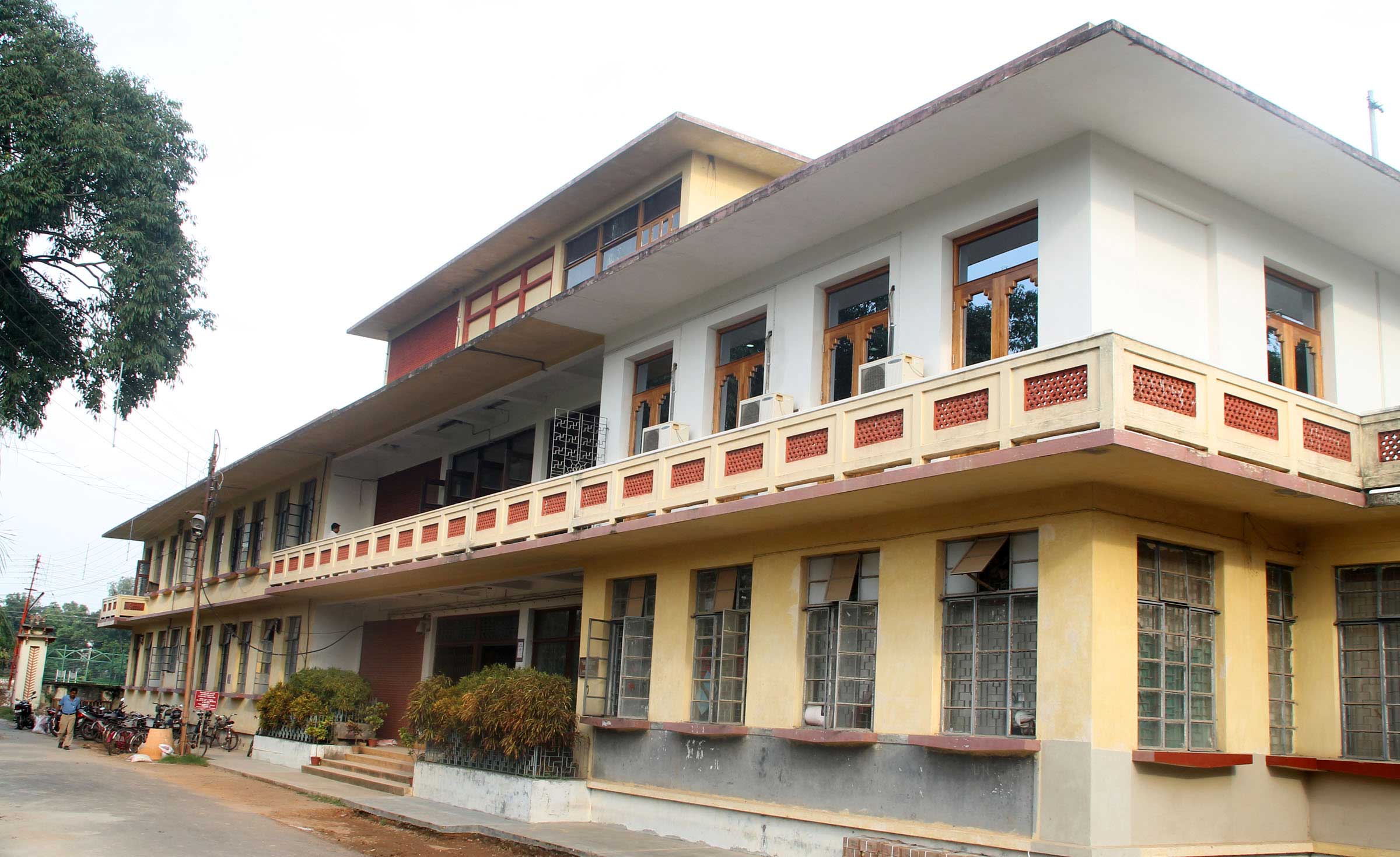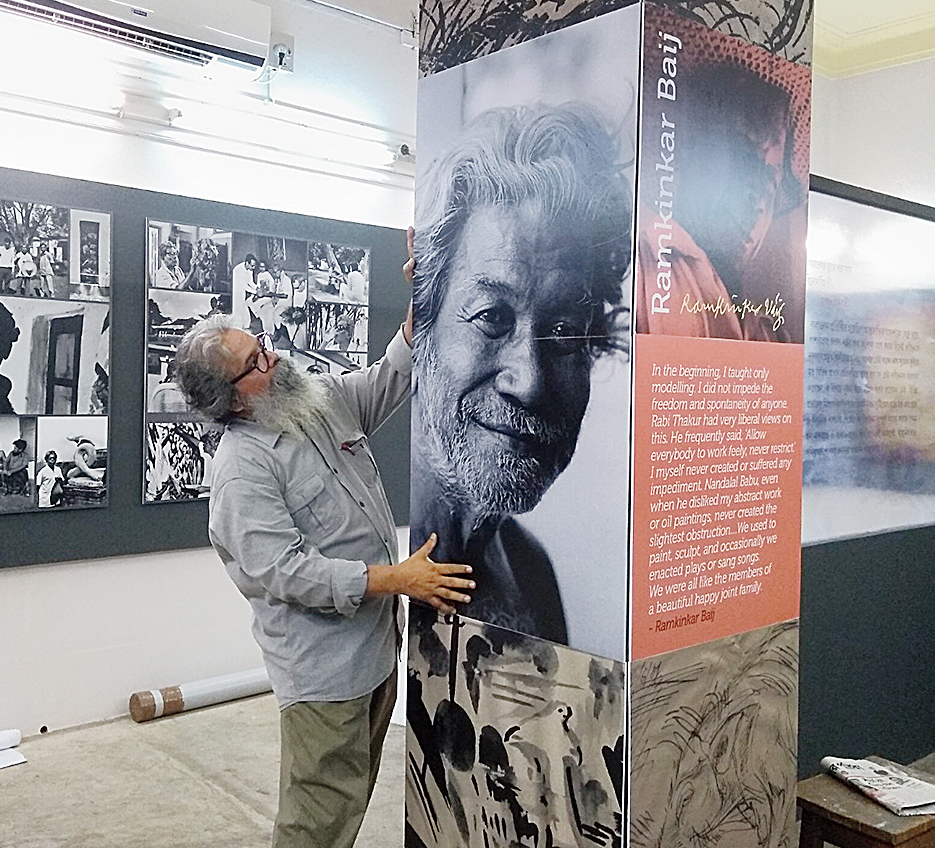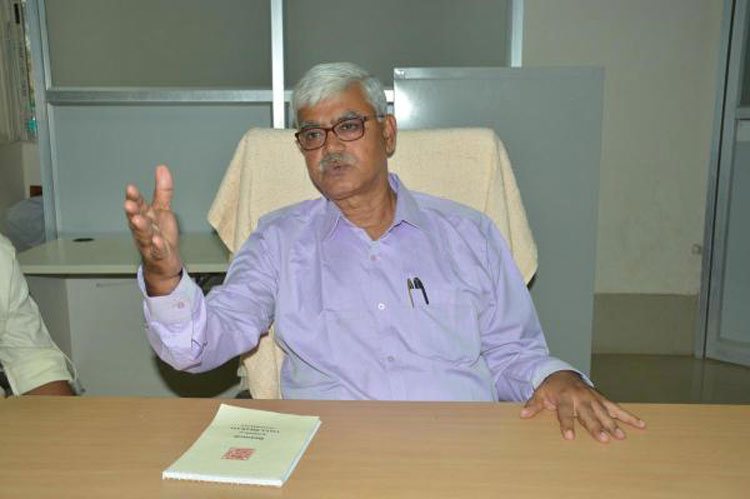In the history of security measures in educational institutions in India, it is only the second time that a university has demanded that the Central Industrial Security Force provide security cover to the campus. The ministry of human resource development had concurred. The Banaras Hindu University had made a similar request in 2017, but the home ministry turned it down.
The security of the Visva-Bharati campus in Santiniketan is, like all other universities, handled by a private agency. But the vice-chancellor, Bidyut Chakrabarty, has demanded the CISF citing the inability of private security guards to restore peace in the campus during confrontations between the university administration and students and workers. His contention is that the guards owe allegiance to the ruling Trinamul Congress and thus disobey the orders of the university’s security officer.
When students protested the increase in cost of application forms in May and prevented the faculty and staff members from leaving the campus, the guards stood mute spectators. But the simple solution here was to end the contract with the security agency and replace it with another agency. Yet another way could be to call the police and disperse the students. But demanding a Central police force for the security of the university is not only unprecedented but also absurd.
Perhaps, the vice-chancellor thought that the university being under the Centre with the prime minister as its chancellor, he could opt for a Central force. Little did he realize the adverse impact this would have on students. Having got wind of the proposal sent by the vice-chancellor, the students threatened to go on strike if the CISF is permanently deployed. The Union home ministry has given “in principle” approval. But the ministry of human resource development is now allegedly exploring “other options” to address the security concerns.
The CISF is mandated to secure sensitive installations in the country, such as airports. Raised in March 1969 by an Act of Parliament primarily to guard pubic sector undertakings and industries, the force was upgraded to an armed force of the Union in June 1983. It is trained along military lines. To have such highly trained personnel securing universities is a waste. It is not just humiliating but also below the dignity of an armed force of the Union to be guarding a handful of faculty members.
What is worse is that there is a great demand for the Central Armed Police Forces — of which the CISF is a part — all over the country. Massive deployment of such personnel in Jammu and Kashmir after the abrogation of Article 370, in Nagaland and Manipur with the Naga peace talks in its final stages and, of late, in Ayodhya has taken a toll on the security forces. Training has been the biggest casualty. One company in every battalion is mandated to undergo rotational training throughout the year. But this does not happen on the ground owing to extensive deployment of all companies of the CAPF. When training takes a back seat, the operational efficiency is adversely affected. This, in turn, can lead to ugly incidents.
Deployment in a university campus will stunt the efficiency of the force. Lethargy will set in, which, in the long run, will harm the organization. Since the CISF cannot carry weapons on such duties, they will be no better than home guards. However, the Central Reserve Police Force has recently been deployed at the Jawaharlal Nehru University owing to agitations by students over the hike in hostel fees. But they are deployed during the day near the gate and later return to their barracks. This too is a temporary measure to tide over the current crisis.
In the interest of maintaining high standards of efficiency of the CAPF, the ministry of home affairs should refrain from giving in to demands to deploy Central forces at universities. Meanwhile, the services of the CISF could well be utilized by Visva-Bharati to carry out a study of the existing security measures and to get advice regarding the upgradation of security norms in the campus.












